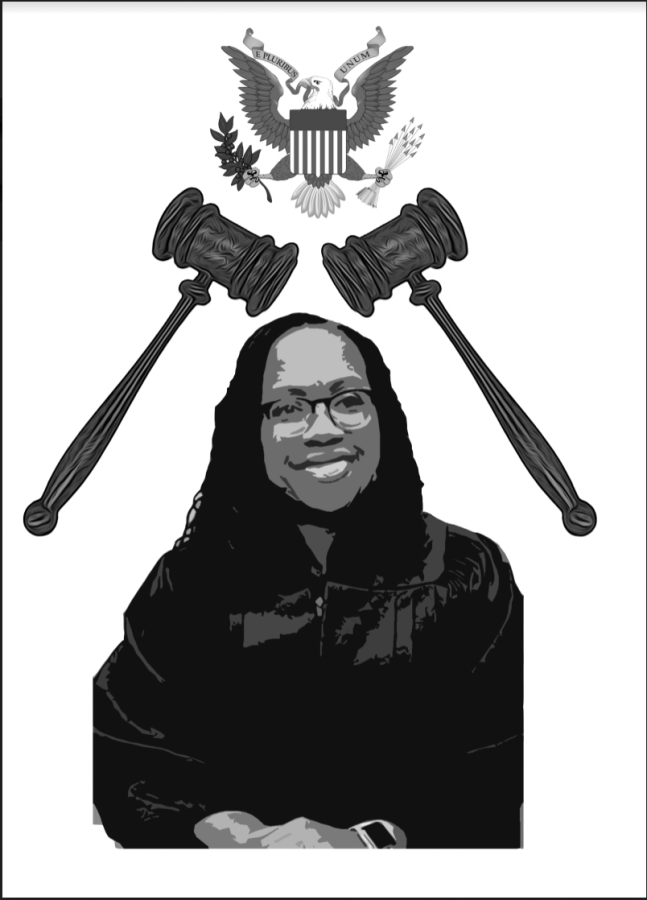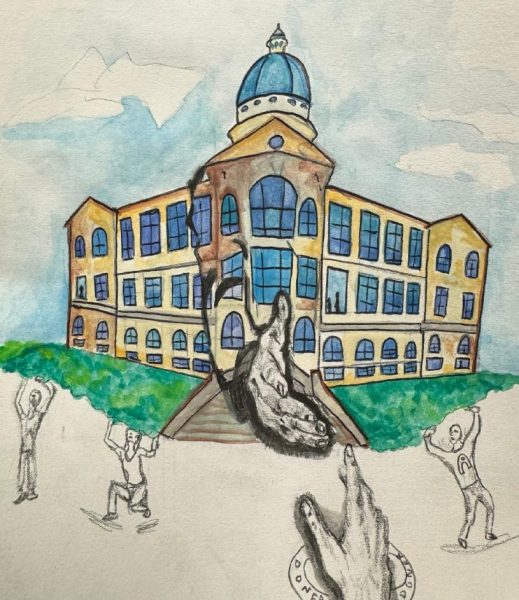Supreme Court nominee Jackson possible beacon of hope for African-Americans
March 12, 2022
On Feb. 25, President Biden announced his nominee to replace retiring Justice Stephen Breyer on the Supreme Court: Judge Ketanji Brown Jackson.
A former law clerk for Breyer, Judge Jackson will be the first Black woman to be nominated to serve on the Supreme Court. Sherrilyn Ifill, the president and director-counsel of the NAACP Legal Defense and Educational Fund, also said that she would only be the eighth justice on the bench to not be a white male in its 232-year history.
Biden’s nominee also comes off the back of a promise made while campaigning for the 2020 election, and he continued to stress how “our government, our courts haven’t looked like America.”
As of 2020, Black and African-Americans account for 12.1% of the United States population. Augie’s 2021 diversity report via College Factual reports that approximately 3.6% of undergraduates are black. Jackson’s rise to the nation’s highest court can assure the College’s 3.6% that they can have lauded positions not only on campus, but also post-graduation.
Born in Washington, D.C. and raised in Florida, Jackson’s parents attended segregated primary schools, then historically black colleges and universities. Both started their careers as public school teachers and eventually became leaders and administrators in the Miami-Dade Public School System.
Inspired by her father attending law school while she was in preschool, Jackson cited him as the source for her love of the law. She was successful in speech and debate, but her high aspirations to attend Harvard didn’t come without doubters. For example, her guidance counselor warned that she should not set her “sights so high.”
She overcame any and all skepticism by graduating magna cum laude from Harvard and cum laude from Harvard Law School.
She served as a federal public defender in Washington, a commissioner on the U.S Sentencing Commission and on the federal district court in D.C.
Judge Jackson can be seen as an inspiration to black youths, as Ifill explains “for Black women in particular, the powerful symbolism of her nomination runs deep.” Black individuals can work diligently and possess the drive to occupy roles traditionally held by white men, and Jackson’s case is a prime example.
Minority students on campus, not solely Blacks or African-Americans, should embrace this event by seizing opportunities to participate in on-campus affairs and extracurricular activities. Organizations such as Black Student Union (BSU) and Latinx Unidos (LU) allow minority student populations to interact with like-minded individuals while building their resumes and interpersonal skills.
Even though her nomination to the Supreme Court will not change the ideological structure on the court, a 6-3 conservative majority, Ifill said how “she has the potential to widen the perspective that is brought to how these issues are debated.” In her eyes, “this is how change begins…by stabilizing comfortable narratives, with the inclusion of those who have not been seen.” By going against the status quo and entering fields or professions commonly held by white people, men, or a combination of the two, minority college students can perceive how they can subvert traditional norms and break through into their desired positions.
Linda Greenhouse, the winner of a 1998 Pulitzer Prize, describes Judge Jackson as a “quintessentially American success story.” Supreme Court justices’ lifelong tenures on the bench will make it so that she can have a significant impact on constitutional interpretation until she retires. She can pave the way not only for future judges, but black youths across the country.
As a member of the minority liberal wing of the Court, she will not have the ability to swing the Court’s vote or to alter the course of cases brought to it. However, she can initiate a change not only in the Court’s makeup, but also how it could view racial and gender exclusion.
Groups on campus such as BSU could feel empowered at events like this, and other diverse groups can feel like they have a voice.
The meanings of equal protection under the law and equal justice will become more prominent with a black woman on the Court, so let’s hope that her confirmation and eventual service to the Court will spark some change within the nation’s legal perception.




















































































































